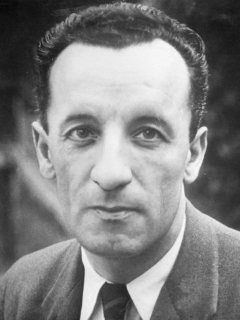Harrison Hall
(1996). The epistemological significance of Husserl's theory of intentionality. In B. Wachterhauser (Ed.). Phenomenology and skepticism (pp. 52-62). Evanston, Ill.: Northwestern University Press.
(1989). Husserl's realism and idealism. In J. N. Mohanty, & W. R. Mckenna (Eds.). Husserl's phenomenology (pp. 429-443). Washington DC: University Press of America.
(1989). Self-presentation. In E. F. Kaelin, & C. Schrag (Eds.). American phenomenology (pp. 339-341). Dordrecht: Kluwer.
(1988). Naturalism, schemas, and the real philosophical issues in contemporary cognitive science. In H. Otto, & J. Tuedio (Eds.). Perspectives on mind (pp. 239-248). Dordrecht: Springer.
(1983). Merleau-Ponty's philosophy of mind. In G. Flistad (Ed.). Philosophy of Mind/Philosophie de l’esprit (pp. 343-361). Dordrecht: Springer.
with Dreyfus, H.L. (1982). Introduction. In H. L. Dreyfus (Ed.). Husserl, intentionality and cognitive science (pp. 1-27). Cambridge, Mass.: MIT Press.
(1982). The philosophical significance of Husserl's theory of intentionality. Journal of the British Society for Phenomenology, 13, 79-84.
(1982). Was Husserl a realist or an idealist?. In H. L. Dreyfus (Ed.). Husserl, intentionality and cognitive science (pp. 169-190). Cambridge, Mass.: MIT Press.
(1982). Was Husserl a realist or an idealist?. In H. L. Dreyfus (Ed.). Husserl, intentionality and cognitive science (pp. 169-190). Cambridge, Mass.: MIT Press.
(1980). The other minds problem in early Heidegger. Human Studies, 3 (1), 247-254. https://doi.org/10.1007/BF02331812.
(1979). Intersubjective phenomenology and Husserl's cartesianism. Man and World, 12 (1), 13-20. https://doi.org/10.1007/BF01249177.
(1977). The continuity of Merleau-Ponty's philosophy of perception. Man and World, 10 (4), 435-447. https://doi.org/10.1007/BF01248837.
(1970). Idealism and solipsism in Husserl's Cartesian meditations. Journal of the British Society for Phenomenology, 1 (1), 53-55.




